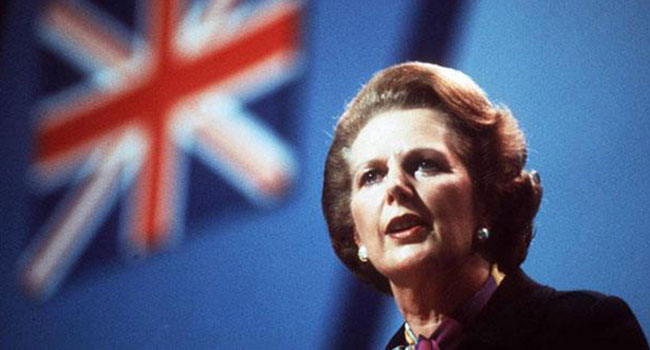 On May 3, 1979, United Kingdom voters trooped to the polls and produced a result that nobody would have countenanced a mere five years earlier. Defeating the sitting Labour government, Margaret Thatcher led the Conservatives into a lengthy sojourn in office.
On May 3, 1979, United Kingdom voters trooped to the polls and produced a result that nobody would have countenanced a mere five years earlier. Defeating the sitting Labour government, Margaret Thatcher led the Conservatives into a lengthy sojourn in office.
The novelty derived from the U.K. never having had a female prime minister, let alone a Conservative one. Plus there was Thatcher herself. Thanks to her abundant sharp edges, she was nobody’s idea of a media-friendly late-20th-century politician.
In some respects, her unlikely ascent was an indication of how messed up Britain had become. With rampant inflation, constant strikes and low productivity, problems seemed beyond the capacity of the political consensus that had reigned since the Second World War.
Dubbed the Winter of Discontent, late 1978, early 1979 had been particularly difficult. Despite being natural allies, the trade unions and the Labour government seemed to be at war with each other.
It was primarily about wage settlements. Anxious to reduce roaring inflation, the government wanted to contain pay raises. But the unions wouldn’t hear of it.
Bernard Donoughue, the left-wing academic and senior policy adviser to two Labour prime ministers, was scathing in his assessment. He said that if Thatcher “comes to power it will be wholly because of the trade unions.” However unwitting, they would “have acted as her stormtroopers.”
For their part, the Conservatives struck some clever rhetorical notes. There was the poster of a lengthy dole queue, entitled “Labour isn’t working.” In the reckoning of Thatcher biographer Charles Moore, the poster marked “the beginning of the Conservatives’ rhetorical conquest of Labour.”
There was also some early jockeying aimed at framing impressions.
Thatcher’s advisers calculated that a conciliatory offer to the beleaguered government could pay electoral dividends. Because of its dependence on the unions, Labour would be unable to accept the offer, but the Conservatives would benefit from having made it. They’d be putting country ahead of party.
Conciliation, however, didn’t come naturally to her. She was a conviction politician, not a consensus seeker. Still, she went along with the suggestion, her pitch coming via a Jan. 17, 1979, TV broadcast.
The Conservatives would offer parliamentary co-operation if the government would take action on a range of labour practices, including putting a ban on secondary picketing. No determined group should be allowed to “strangle the country.”
And lest anyone be confused about who to blame, she pointed the way: “I recognize how hard this is for the Labour Party because of their close connections with the unions. Without the unions, there would be no Labour Party. Without union money, there would be no Labour funds.”
Meanwhile, Labour tried a gambit of its own.
While TV debates between leaders weren’t a feature of British elections at the time, Labour offered to participate in one. The thinking was that Thatcher would surely refuse and thus Labour would score points. In fact, as Donoughue privately noted, they were banking on her refusing.
And so she did, although only after yielding to the advice of her campaign team who wanted the election to be focused on the Winter of Discontent rather than personalities.
Biographer Moore identifies two other events that he deems key.
When Conservative MP and Thatcher adviser Airey Neave was murdered by an Irish National Liberation Army car bomb, her response was steeliness personified. And in a televised forum before an audience in the swing constituencies of Bolton, she came across as “a woman well in touch with the anxieties of lower-middle England, and ready to do something about them.”
If you wanted business as usual and more of the same, she wasn’t your candidate. But clearly cut from a different cloth than her contemporaries, she might fit the bill if you wanted change.
Polls at the beginning of the formal campaign had the Conservatives comfortably in front but they tightened considerably as election day approached. There was even one that showed Labour ahead by a whisker.
At the end, though, it wasn’t particularly close.
Running seven points ahead in the popular vote, the Conservatives won 339 seats. This was 21 more than the requirement for an absolute majority. And significant electoral inroads were made with skilled and unskilled working-class voters, categories that had hitherto belonged to Labour.
For better or worse, the Thatcher era had begun.
Troy Media columnist Pat Murphy casts a history buff’s eye at the goings-on in our world. Never cynical – well, perhaps just a little bit.
The views, opinions and positions expressed by columnists and contributors are the author’s alone. They do not inherently or expressly reflect the views, opinions and/or positions of our publication.


